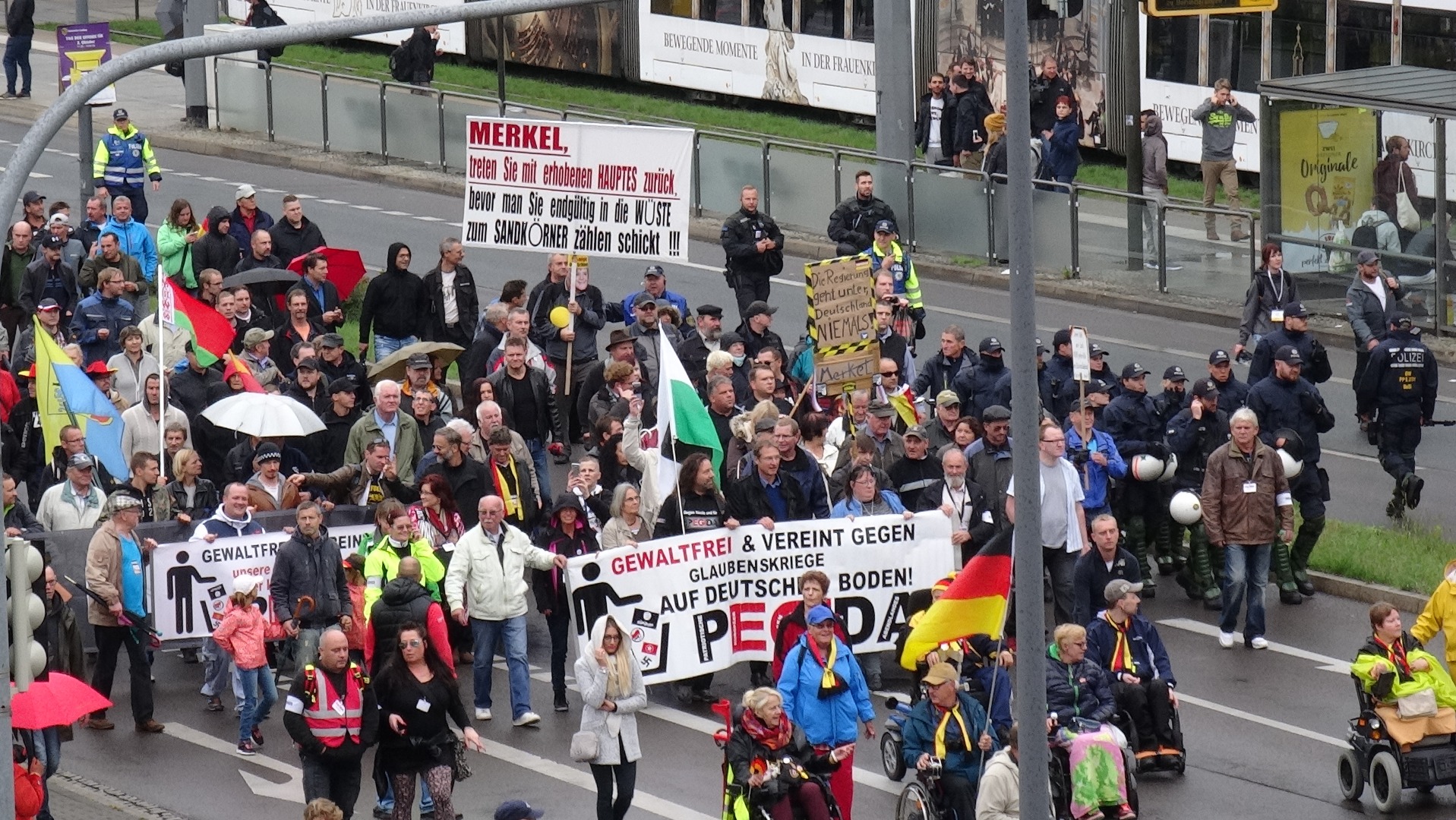Right-wing populism is gaining in influence around the world and taking advantage of crises to increase its popularity. A new study examines the AfD’s strategies during the 2015 migration crisis and the coronavirus pandemic and asks how they differ.
Introduction
For some time now, right-wing populism has been gaining ground in many countries and threatening democratic institutions through its anti-pluralist attitude. Populist rhetoric typically sets the “people” against an “out-of-touch elite” whom they hold responsible for problems of every kind. Crises provide a good opportunity to spread this narrative. However, crises are not objective realities, but are “constructed” in public discourse. This is why populists regularly engage in “crisis performance”, i.e., they attempt to portray a controversial event as a serious crisis and lay responsibility for it at the door of government.
In this context, the COVID-19 pandemic represented an ideal opportunity for populists to increase their support among the population. And yet survey data show that the opposite happened: right-wing populists were unable to gain advantage from the COVID-19 crisis in the way that they did from other crises. This conundrum prompted an international research team, in which the IDHEAP participated, to look at the question of which crises lent themselves particularly well to populist exploitation and for what reasons.
The research process
To answer this question, the team focused on the Alternative für Deutschland (AfD), one of the most prominent populist parties in Europe, comparing its crisis performance during the European refugee crisis (2015-2016) and the COVID-19 crisis (2020-2021). The advantage of analysing the performance of a single party in two different crises is that many factors likely to affect performance are bound to remain constant, making it easier to identify decisive factor(s). A qualitative content analysis of over 400 press statements made by the AfD was carried out using MAXQDA software. This approach allowed a systematic, rule-based and intersubjectively under-standable analysis of texts. Definitions and anchoring examples helped to sort various parts of each text into theoretical categories.
Results and implications
The analysis showed that the AfD immediately produced a unique and catchy narrative for the refugee crisis, linked it with other crises, and proposed simple political measures (such as large-scale expulsions) to resolve it. Its performance during the COVID-19 crisis was very different, however. The AfD changed its crisis narrative several times and made sometimes contradictory announcements (for example, mass testing was first presented as a very effective solution and shortly afterwards rejected as a constraint on liberty). The main differences are summarized in Table 1.
Table 1 | Main differences between the AfD’s crisis performances
| Theoretical category | Refugee crisis | COVID-19 crisis |
|---|---|---|
| Number of crisis narratives | 1 (refugees posed a cultural and economic threat for Germany) | 3 (slow, indulgent response from the government; devastating economic consequences of lockdowns; violation of basic rights) |
| Links with other crises | 5 (economic failures; public-order problems; drug-dependency problems; Eurocrisis; “energy turn”) | 1 (migration crisis) |
| Contrasting the elite with the people | Yes (using numerous examples) | Yes (with very few illustrative examples) |
| Proposed political solutions | Bold and simple | More nuanced (and partially contradictory) |
These differences can be explained by the differing “distance” between these crises and the population which, according to “policy feedback theory”, affects the public’s ability to interpret political events. The refugee crisis was above all a media event—only a few people were directly concerned. This gave the AfD a great deal of latitude to exaggerate and make false statements (for example, about the criminality rate among refugees). During the COVID-19 crisis, the AfD’s room for interpretation was comparatively much smaller, since the population was directly concerned by the crisis and could thus more easily verify or judge political statements.
The main result of the study is therefore that the “distance” from or “proximity” to the public determines a crisis’ potential for populist exploitation. The study results provide a basis for recommendations on how to politically counter right-wing populists. Political decision-makers should, on the one hand, clearly explain the effects of a crisis to the public (rather than downplaying them) and, on the other hand, criticize the often unrealistic solutions proposed by populist actors (rather than expressing general outrage at their declarations).
Reference:
Hinterleitner, Markus, Valentina Kammermeier and Benjamin Moffitt (2023). How the Populist Radical Right Exploits Crisis: Comparing the Role of Proximity in the COVID-19 and Refugee Crises in Germany, West European Politics, early view.
Picture: Wikimedia Commons






